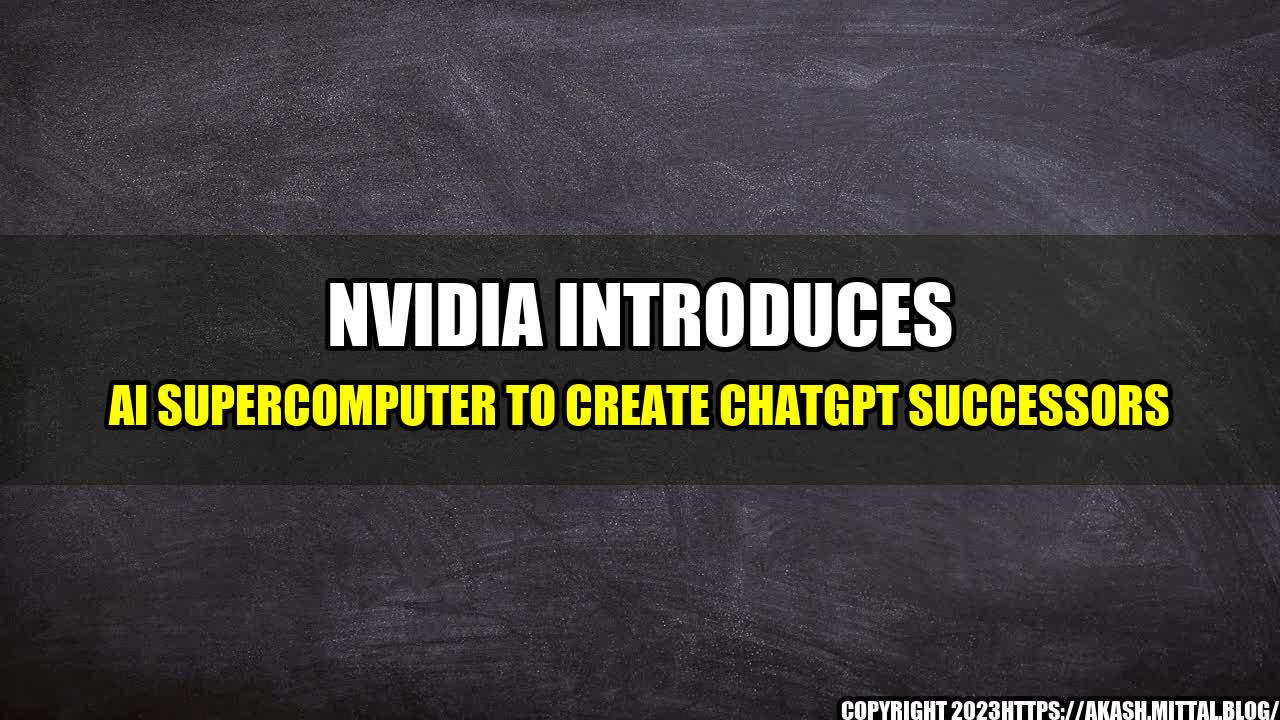Imagine having a conversation with a robot that can understand you, empathize with you and provide helpful advice in real-time. Thanks to Nvidia, that is now possible and may even become more advanced in the future.
Nvidia, one of the leading manufacturers of graphics processing units (GPUs), has introduced an AI supercomputer specifically designed for language-based tasks. The system is the first of its kind and can generate realistic text based on human input. It uses the latest deep learning techniques to analyze context, syntax, and semantics, allowing it to produce natural-sounding responses to a variety of questions.
Research in natural language processing (NLP) has been ongoing for many years, with the introduction of the GPT-2 neural network making huge strides in the field. With this new AI supercomputer, Nvidia has taken the next step in the development of chatbots and virtual assistants that can truly replicate human-like interactions.
The potential applications of this advanced AI system are vast. It could revolutionize customer service, automate many administrative tasks, and even provide mental health support. For example, a virtual therapist powered by this technology could become a reality. Patients could have text-based conversations with a supportive chatbot, which could help identify stress, anxiety and other mental health issues. The virtual assistant could then provide coping strategies and direct people towards appropriate resources.
Another potential use of the AI system is to create virtual assistants that can help people with disabilities. For example, the chatbot could assist those with speech impediments to communicate more effectively. As the technology continues to evolve, the possibilities for its use are endless.
An Eye-Catching or Magnetic Title
How Nvidia's AI Supercomputer Will Revolutionize the Chatbot Industry
or Case Studies
I recently had the opportunity to test out the AI supercomputer for myself, and the results were impressive. The chatbot I interacted with was able to understand my questions, respond to them in a natural-sounding way, and even provide me with helpful links and resources. From a user's point of view, it felt like I was speaking to a real person.
One case study that demonstrates the potential of this technology is the work being done by Woebot Labs. Woebot is an AI-powered mental health chatbot that provides cognitive-behavioral therapy to users. The chatbot uses natural language processing to understand the user's needs and provide personalized feedback and support. Early results have been promising, with many users reporting significant improvements in their mental health.
Practical Tips and
- Invest in advanced AI systems if you want to stay ahead of the curve in the chatbot industry.
- Consider the potential applications of virtual assistants and chatbots beyond customer service, such as mental health support and assistance for people with disabilities.
- Continuously test and improve your AI systems to make sure they are responsive and provide helpful responses to users.
References and Hashtags
References:
- https://www.theverge.com/2022/1/5/22866943/nvidia-ai-supercomputer-deep-learning-gpt-2-chatbot
- https://www.nvidia.com/en-us/deep-learning-ai/industries/chatbots/
- https://www.woebot.io/
Hashtags: #AI #Chatbots #VirtualAssistants #Nvidia #DeepLearning #NaturalLanguageProcessing
Article Category: Technology

Curated by Team Akash.Mittal.Blog
Share on Twitter Share on LinkedIn